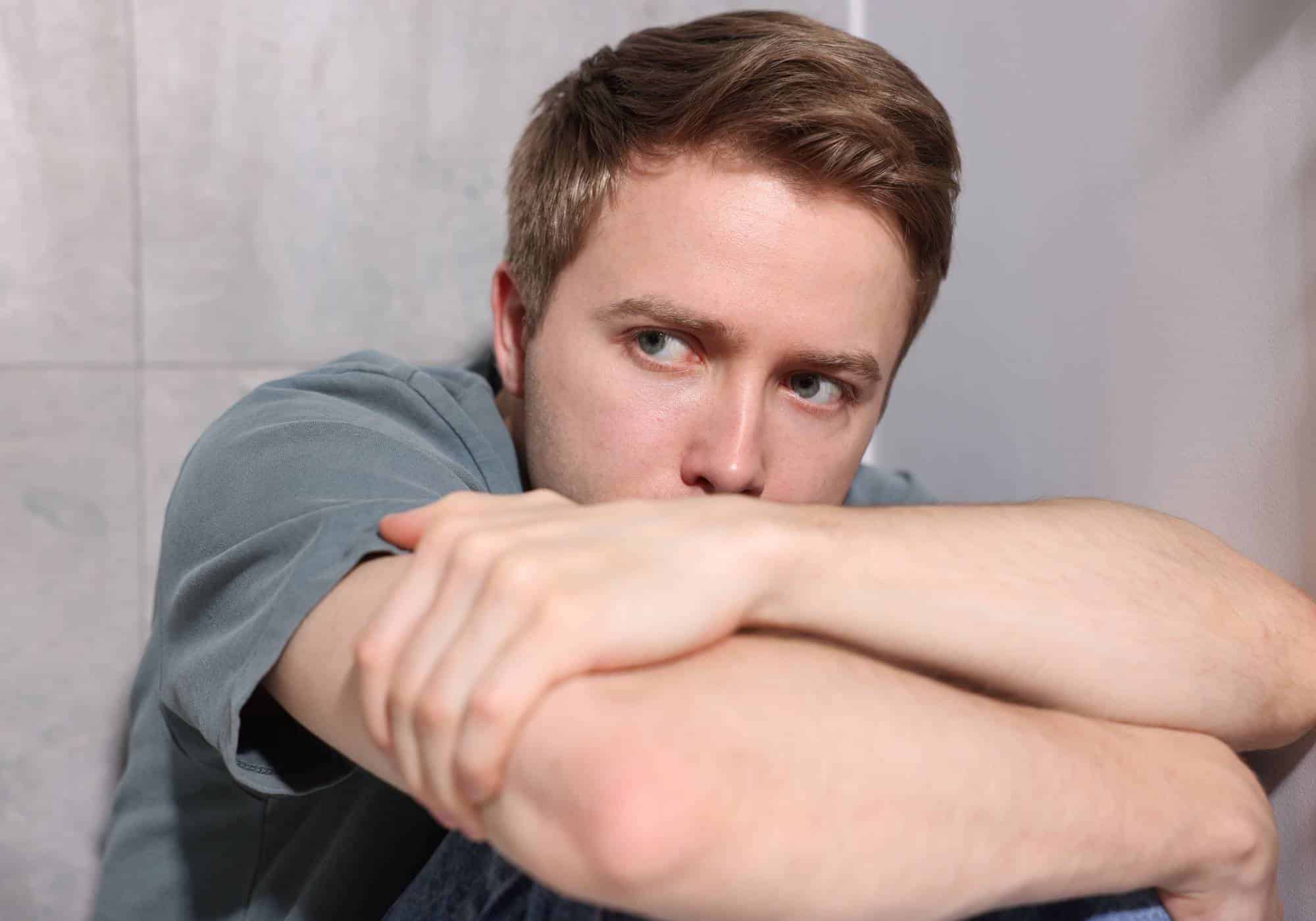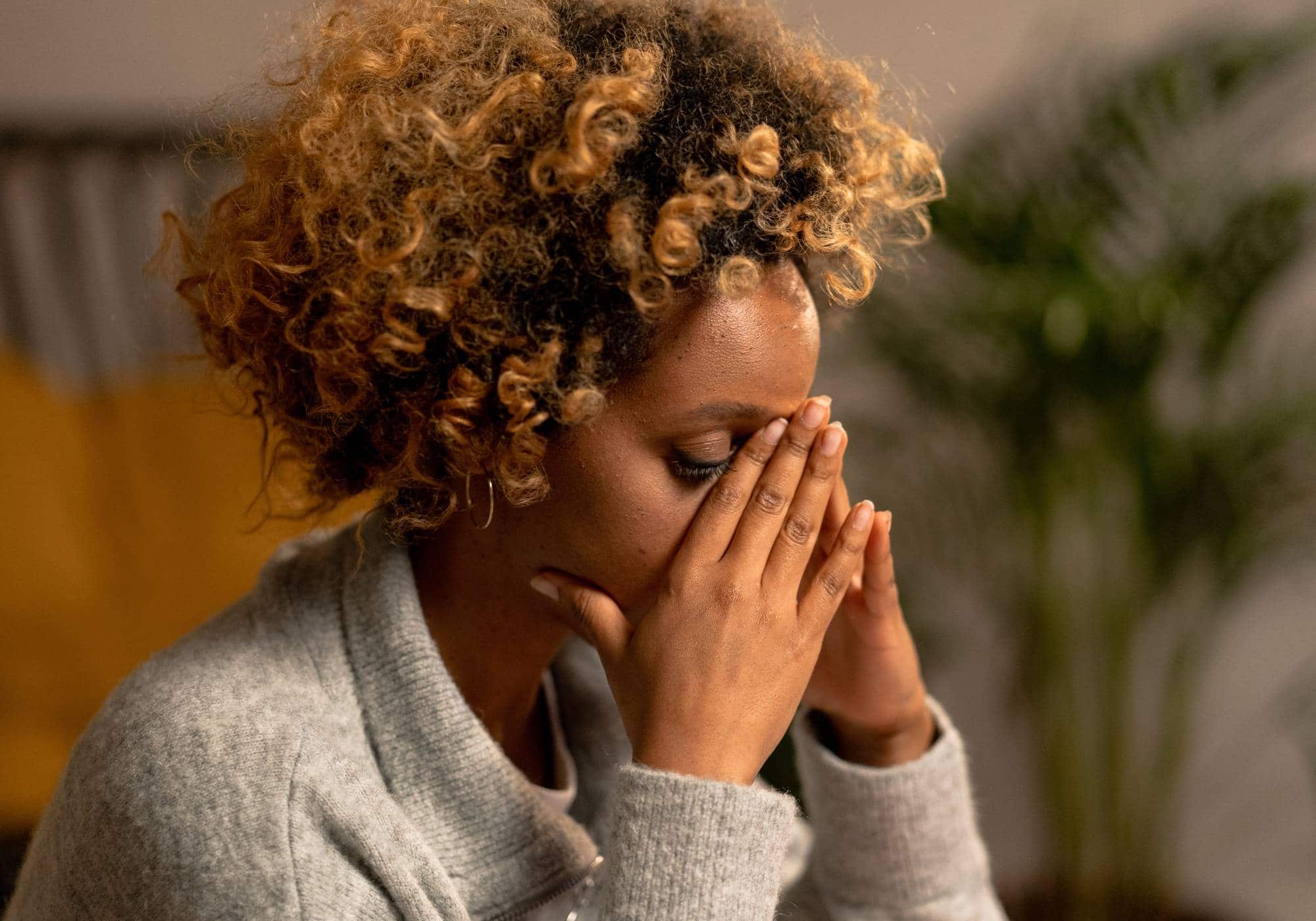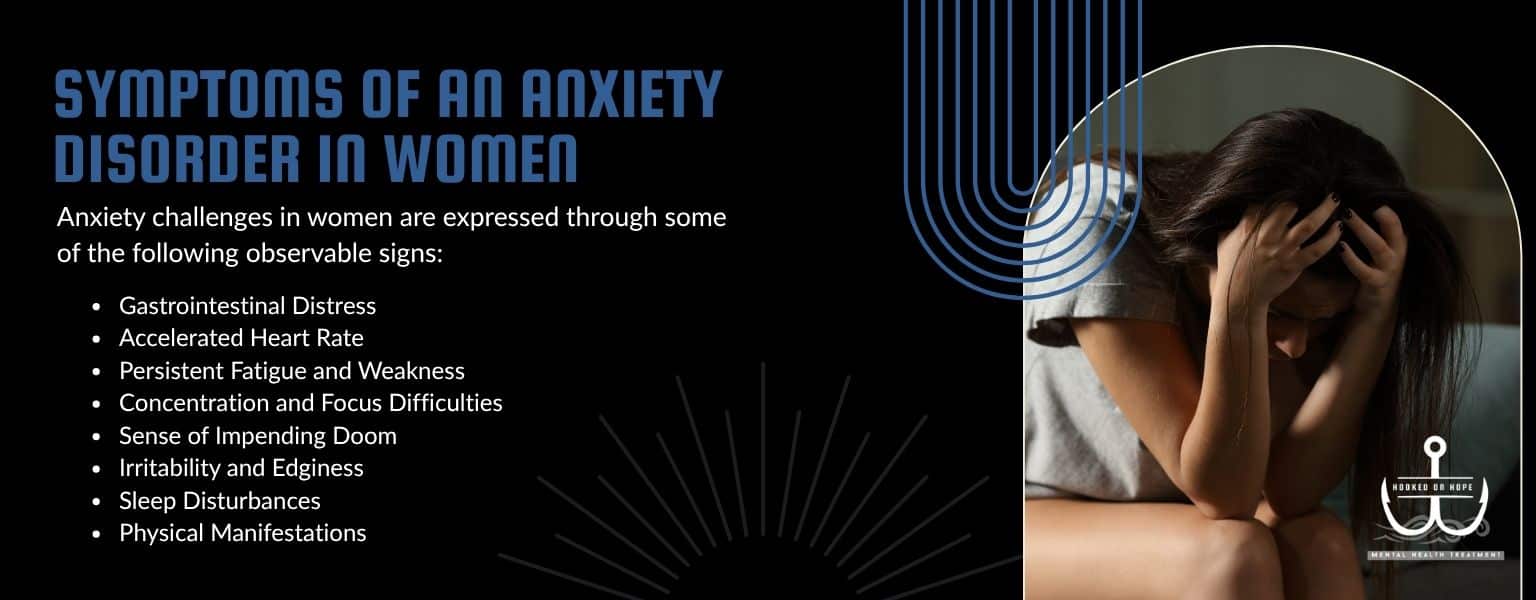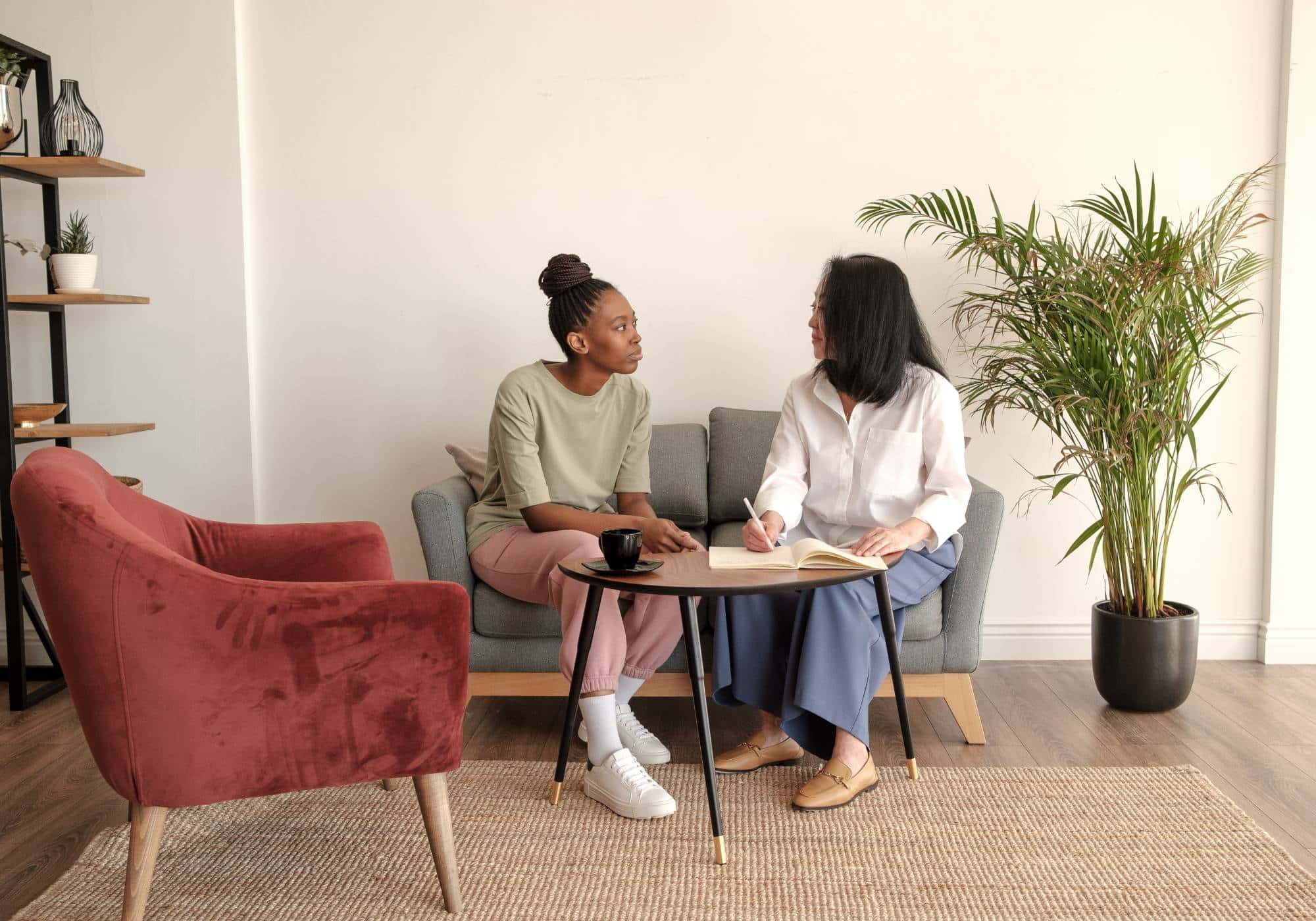Racing heart. Palms damp with sweat. A mind that refuses to settle, jumping from one worry to the next. Feeling perpetually on edge, a nervous tension thrumming beneath the surface. Perhaps you harbor a persistent sense that something is amiss or about to go wrong, even when circumstances seem perfectly fine. If these experiences resonate with you, it’s possible you are among the hundreds of millions worldwide navigating the challenges of an anxiety disorder.
These unsettling sensations are merely a few of the many indicators associated with anxiety conditions. The American Psychological Association (APA) defines anxiety as an emotional state characterized by intense feelings of tension, persistent worried thoughts, and noticeable physical alterations. For women in today’s demanding world, these manifestations of anxiety have become all too common.
Indeed, women are experiencing the pervasive effects of anxiety with increasing frequency. As women endeavor to meticulously balance the intricate demands of professional careers, raising children, nurturing relationships, safeguarding personal health, and perhaps even attempting to maintain a semblance of a social life, the prevalence of anxiety disorders among them is surging exponentially. According to statistics from the Anxiety and Depression Association of America (ADAA), women are twice as likely as men to develop an anxiety disorder.
It is a common, though unfortunate, occurrence that individuals—both men and women—who contend with anxiety disorders also struggle with a substance use disorder (SUD) or alcohol use disorder (AUD). This complex interplay of conditions is clinically referred to as a co-occurring disorder, or having a dual diagnosis. The Substance Abuse and Mental Health Services Administration defines a co-occurring disorder as the simultaneous presence of both a mental health condition and a substance use disorder.
According to a significant article published in the American Journal of Psychiatry, individuals grappling with mental health challenges, such as an anxiety disorder, frequently resort to alcohol or other substances as a form of self-medication. Initially, these substances might appear to offer a fleeting “relief” from the distressing and uncomfortable symptoms of their mental health struggles. However, what often happens is that both the co-occurring disorders, rather than improving, tend to worsen over time, trapping the individual in a more complex cycle.
If you suspect you may be experiencing a co-occurring AUD or SUD alongside a mental health issue, it is crucial to recognize that you are far from alone. The National Institute on Drug Abuse (NIDA) reports that a substantial 7.7 million American adults live with co-occurring mental health and substance use disorders. This figure represents nearly 38% of all individuals diagnosed with SUDs.
Comorbidity, a term used interchangeably with co-occurring disorders and dual diagnosis, inherently implies that the interactions between the two distinct disorders have a significant potential to exacerbate both conditions. Regrettably, this is all too often the case, particularly true when an anxiety disorder is present alongside a substance use challenge.
For the millions of Americans grappling with these intertwined disorders, the sooner comprehensive help is sought, the more favorable the outcome for both conditions. Seeking support from a mental health provider with expertise in recognizing and addressing complex clinical presentations, including the intricate connection between anxiety and self-medication, is absolutely crucial. Understanding that these conditions often feed into each other is the first step towards effective intervention.
It is frequently challenging to precisely pinpoint which disorder emerged first: the substance use issue or the mental health condition. Complicating matters further, both types of disorders can share strikingly similar symptoms as well as overlapping underlying causes.
Symptoms of an Anxiety Disorder in Women
Anxiety disorders are legitimate, medically recognized conditions. Just as chronic physical ailments like asthma or high blood pressure are tangible medical conditions that respond positively to appropriate treatment, anxiety disorders are equally serious medical conditions that can be effectively managed and controlled. If you believe you are experiencing any of the common indicators of anxiety in women, it is vital to know that hope exists to overcome these distressing symptoms, which frequently compromise the overall quality of daily life.
Given that anxiety disproportionately affects more women than men, it becomes critically important to be well-informed about the specific manifestations of anxiety disorders in women. The presentation of anxiety symptoms can vary significantly from one woman to another. Some women may experience a particular cluster of symptoms, while another woman might exhibit an entirely different set.
However, most often, anxiety challenges in women are expressed through some of the following observable signs:
- Gastrointestinal Distress: Ongoing nausea, a persistent inability to eat much, and recurrent stomach pain, often described as a “nervous stomach.”
- Accelerated Heart Rate: A noticeable increase in heart rate, particularly during situations or events perceived as stressful or triggering. This can feel like palpitations or a pounding heart.
- Persistent Fatigue and Weakness: Feelings of extreme tiredness, profound lethargy, or inexplicable physical weakness, even after adequate rest.
- Concentration and Focus Difficulties: Significant struggles with maintaining attention, often leading to difficulty completing tasks or following conversations.
- Sense of Impending Doom: A pervasive sense of impending danger, intense feelings of doom, or sudden, overwhelming panic attacks that seem to strike without warning.
- Irritability and Edginess: Heightened irritability, persistent nervousness, or a constant feeling of being “on edge,” making it difficult to relax.
- Sleep Disturbances: Insomnia, difficulty falling asleep, staying asleep, or experiencing restless, unrefreshing sleep.
- Physical Manifestations: Episodes of rapid breathing (hyperventilation), excessive sweating, and uncontrollable shaking or trembling.
These are all indicative signs of anxiety in women. However, it’s crucial to acknowledge that some of these symptoms can also overlap with those of substance use disorders, complicating self-assessment. While anxiety is a normal and adaptive response to genuinely stressful or dangerous situations, it becomes problematic when these “responses” consistently interfere with daily functioning and occur in the absence of any real threat or discernible reason. When these symptoms of anxiety disorders become repetitive, disproportionate, and arise in response to normal daily activities and events, a professional evaluation for an anxiety disorder should be sought promptly.
If you, or a loved one, have been exhibiting these symptoms and are also using alcohol or another substance in an attempt to “ease” them, it is profoundly important to seek a comprehensive evaluation from mental health professionals who can discern the complex interplay between these issues.
Understanding Anxiety and Types of Anxiety Disorders
The National Institute of Mental Health (NIMH) recognizes several distinct types of anxiety disorders that profoundly impact both women and men across the globe.
Generalized Anxiety Disorder (GAD)
This disorder is characterized by persistent and excessive worrying about everyday issues such as work responsibilities, personal health, and family well-being. Women diagnosed with GAD frequently find themselves catastrophizing, mentally jumping to worst-case scenarios, often experiencing chronic muscle tension, and struggling with persistent sleep issues as well as recurring stomach problems. There’s also a noted tendency for women with GAD to experience co-occurring depression, and often have a family history of depressive disorders.
Panic Disorder
This anxiety disorder causes individuals to experience sudden, intense surges of fear or discomfort, often described as panic attacks, where they feel an overwhelming sense of losing control, impending doom, or an intense fear that strikes even when there is no actual danger present. Some women describe these episodes as feeling like they are having a heart attack, dying, or “going crazy.” The physical symptoms are often so severe they mimic medical emergencies.
Phobia Disorders
These disorders are characterized by intense, irrational fears or strong aversions to specific situations, objects, or activities. The intensity of these fears is significantly out of proportion to the actual threat posed by the feared circumstance or thing. These can manifest as social phobias (fear of social situations) or specific phobias (e.g., fear of heights, flying, certain animals).
Social Anxiety Disorder (Social Phobia)
A specific type of phobia disorder, social anxiety is characterized by an intense fear of social situations, leading to avoidance or extreme distress in public settings. Women often experience this as a fear of being judged, humiliated, or embarrassed in front of others, impacting their ability to participate in work, school, or social activities.
Beyond these core classifications, there are also a few conditions that are often closely associated with anxiety disorders:
Post-traumatic Stress Disorder (PTSD)
This complex disorder typically develops after an individual has experienced or witnessed a profoundly scary, harmful, or life-threatening event. Symptoms include flashbacks, nightmares, severe anxiety, and uncontrollable thoughts about the event.
Obsessive-Compulsive Disorder (OCD)
Individuals with OCD experience recurring, unwanted thoughts (obsessions) that generate significant anxiety, leading them to perform repetitive behaviors or mental acts (compulsions) in an attempt to reduce that anxiety. These compulsions often become time-consuming and disruptive to daily life.
Each of these disorders is classified as mild, moderate, or severe. These “levels” of anxiety disorders are generally determined by the number and type of symptoms present, as well as the frequency and intensity with which these symptoms occur and how significantly they impact daily functioning.
The specific type of anxiety disorder, along with its severity, plays a crucial role in determining the most appropriate and effective treatment options. It is empowering to know that whether an individual experiences just one or two symptoms sporadically, or nearly all of these symptoms on a daily, debilitating basis, there are a variety of evidence-based treatment approaches available that effectively help to control and even overcome anxiety disorders, paving the way for a more peaceful life.
The Impact of Anxiety on Women’s Lives
Beyond the immediate symptoms, chronic anxiety profoundly impacts various facets of a woman’s life. It can erode self-confidence, making it challenging to pursue career advancements or take on new responsibilities. Relationships, whether romantic, familial, or platonic, can suffer as anxiety fuels irritability, withdrawal, or excessive reassurance-seeking. For mothers, anxiety can interfere with bonding, parenting styles, and the ability to find joy in everyday moments with their children. Overall well-being diminishes as persistent worry saps energy, disrupts sleep, and compromises physical health through chronic stress. Recognizing this broader impact is essential for seeking comprehensive support.
When to Seek Professional Help for Anxiety
It’s natural to experience some worry or nervousness in life.
However, anxiety crosses the line from normal emotion to a clinical concern when it becomes:
- Excessive and Persistent: Worrying intensely about everyday things for weeks or months, even when there’s no clear cause.
- Difficult to Control: Feeling unable to stop worrying, despite efforts to calm down.
- Interfering with Daily Life: Anxiety that impacts your job performance, academic success, relationships, sleep, or social activities.
- Accompanied by Physical Symptoms: Frequent headaches, stomachaches, fatigue, rapid heart rate, or muscle tension, not explained by other medical conditions.
- Leading to Avoidance: Regularly avoiding situations, places, or activities because of fear or worry.
- Causing Significant Distress: Feeling overwhelmed, miserable, or hopeless because of your anxiety.
- Linked to Self-Medication: Using alcohol, drugs, or other substances to cope with anxious feelings.
If any of these resonate with your experience, it is a strong indicator that professional help can provide immense relief and support.
Understanding the Causes of Anxiety in Women
Research consistently indicates that both genetic predispositions and environmental factors can contribute to the development of anxiety disorders, as well as substance use disorders. However, for each specific type of anxiety disorder and for every individual experiencing one, the exact causes, the timeline of onset, and the precise way it manifests can vary widely.
There are some general risk factors and causes for anxiety that apply broadly. Here are a few prominent ones:
- Traumatic or Stressful Experiences: Undergoing traumatic, highly stressful, or persistently negative events during childhood or as an adult significantly increases vulnerability to anxiety. This includes experiences of abuse, neglect, major life changes, or chronic stress.
- Family History: A strong family history of anxiety disorders, depression, or other mental illnesses suggests a genetic predisposition, indicating that these conditions can run in families.
- Physical Health Conditions: Certain physical conditions can directly contribute to or exacerbate anxiety symptoms. These include thyroid imbalances (hyperthyroidism), significant hormonal changes, cardiovascular issues, or the side effects of certain medications or illicit drug use.
When considering women and anxiety, it is absolutely essential to acknowledge the profound role that hormone fluctuations can play. The intricate link between women’s hormones and anxiety symptoms has been substantiated in various studies. From the significant hormonal shifts that occur throughout the menstrual cycle to the dramatic postpartum hormone fluctuations following childbirth, and even the changes experienced during perimenopause and menopause, hormonal variations can directly influence anxiety levels. If you are a woman experiencing persistent or unexplained anxiety symptoms, it is crucial to undergo a thorough physical evaluation to determine if hormonal changes could be contributing to or directly causing these feelings.
It is also imperative to honestly assess whether you are engaging in self-medication for anxiety symptoms. Alcohol, illicit drugs, and even inappropriately used prescribed medications are frequently employed by individuals to combat the sometimes debilitating symptoms of an anxiety disorder. If you suspect you may have a co-occurring alcohol or substance use issue alongside your anxiety, seeking help from qualified mental health professionals is vital. They can assess the complexity of your situation and guide you toward the integrated care necessary for both conditions. At Hooked on Hope Mental Health, our focus is on comprehensive mental health treatment, and we can help you understand the connection between anxiety and self-medication, guiding you toward the appropriate specialized support for both mental health and substance use challenges.
Treatment Options for Anxiety Issues in Women
If you are experiencing any of these signs of anxiety in women, it’s crucial to remember you are not alone—and more importantly, there is highly effective help available. According to the NIMH, nearly 32% of adults in the United States will experience an anxiety disorder at some point in their lives, underscoring its widespread impact.
Often, when an individual, particularly a woman, with severe anxiety symptoms struggles to cope and find relief, they might inadvertently begin to self-medicate. Reaching for an occasional glass of wine to calm nerves is not unusual, but for those with underlying anxiety disorders, this seemingly harmless occasional use of alcohol or another substance can quickly become a habitual pattern. Not only can these habits frequently escalate into full-blown alcohol and substance use disorders, but the use of these substances almost invariably leads to an increase in the very symptoms of anxiety in both women and men they were trying to alleviate.
It is absolutely vital that if a co-occurring mental health issue, like an anxiety disorder, and a substance or alcohol use issue is suspected, both conditions receive dedicated, professional treatment. While Hooked on Hope Mental Health specializes in comprehensive mental health care, we recognize the critical importance of addressing co-occurring substance use when present. We can help evaluate individuals for these intertwined issues and guide them toward integrated care, which might involve coordinating with specialized addiction treatment providers if a substance use disorder requires that level of care, alongside the mental health support we offer. Our approach ensures that both the anxiety and any associated challenges are addressed for holistic, lasting well-being.
Whether treatment is needed solely for an anxiety disorder or for co-occurring conditions, many of the therapeutic approaches will share commonalities. Generally, most anxiety disorders are effectively treated with a combination of psychotherapy (counseling) and, in many cases, appropriate medications. However, if a woman is pregnant, the course of medications may be carefully altered. This cautious approach is also true if there is a comorbid diagnosis of an alcohol or substance use issue, where psychiatrists exercise extreme care in what they prescribe, as individuals with substance use histories may be more susceptible to developing dependence on certain medications.
It’s important to understand that while medications can significantly alleviate the symptoms of anxiety in women and men, they typically do not “cure” anxiety disorders. For this reason, therapeutic interventions such as Cognitive Behavioral Therapy (CBT), Dialectical Behavior Therapy (DBT), Exposure Therapy, Acceptance and Commitment Therapy (ACT), and participation in supportive group settings are essential components of comprehensive treatment. Learning healthy stress management and coping techniques is also crucial.
There are numerous healthy stress management and coping skills that an individual can learn and integrate into their daily life. Practices such as regular meditation, mindful yoga, consistent physical exercise, expressive journaling, and actively practicing mindfulness techniques are excellent strategies for relieving anxiety. For anyone currently suffering from severe anxiety, acquiring these skills may seem insurmountable now. However, once you receive the professional treatment you need and your distressing anxiety symptoms are brought under control, these approaches can profoundly transform your life, offering tools for sustained emotional regulation and peace.
The optimal course of treatment will vary somewhat depending on several key factors. Not only is the specific type and severity of the anxiety disorder essential to determine, but so too are the underlying causes of anxiety in women and men, as well as any co-occurring conditions.
Again, it is crucial to take an honest and compassionate look at your own situation and determine if you may be experiencing a co-occurring substance use disorder (SUD) or alcohol use disorder (AUD) alongside your anxiety. If you suspect this is the case, Hooked on Hope Mental Health can help you navigate this complex landscape, providing comprehensive mental health care and guiding you towards the integrated support necessary to address all aspects of your well-being.
Hooked on Hope Mental Health: Your Partner in Healing
At Hooked on Hope Mental Health, we specialize in empowering women to navigate and overcome the complexities of anxiety. Our dedicated team of mental health professionals understands the unique challenges women face, from hormonal influences to societal pressures and the intricate dance with co-occurring conditions. We provide evidence-based therapeutic approaches tailored to your individual needs, fostering a safe and supportive environment where you can explore the roots of your anxiety, develop powerful coping mechanisms, and cultivate lasting emotional resilience. We believe in integrated care, recognizing that true well-being often involves addressing all aspects of your mental health journey.
Begin Your Journey to Peace at Hooked on Hope Mental Health
If you relate to these pervasive symptoms of anxiety, or suspect a co-occurring mental health challenge, remember you’re not alone and transformative help is readily available. At Hooked on Hope Mental Health, we are here to offer innovative outpatient mental health treatment and uncompromising care tailored specifically for women. Take the vital first step and contact us today at 470-287-1927 or via our online contact form and begin your journey toward a life free of the pervasive grip of anxiety, where hope truly shines.
Anxiety Symptoms in Women Frequently Asked Questions
Why are women more prone to anxiety than men?
Women are twice as likely to develop anxiety disorders due to a combination of biological factors (like hormonal fluctuations throughout the menstrual cycle, pregnancy, and menopause), unique societal pressures, and differing responses to stress.
What are the most common physical symptoms of anxiety in women?
Common physical symptoms include a racing heart, stomach problems (nausea, pain), muscle tension, headaches, fatigue, dizziness, rapid breathing, excessive sweating, and sleep disturbances like insomnia.
Can hormonal changes cause or worsen anxiety in women?
Yes, significant hormonal shifts during puberty, menstrual cycles, pregnancy, postpartum periods, and menopause can directly influence brain chemistry and contribute to the onset or exacerbation of anxiety symptoms in women.
Is it common for anxiety to occur with other mental health issues or substance use?
Yes, it’s very common for anxiety to co-occur with other mental health conditions like depression, or with substance use disorders (SUDs) and alcohol use disorders (AUDs). This is often referred to as a dual diagnosis, where individuals may self-medicate anxiety symptoms with substances.
What are the different types of anxiety disorders that commonly affect women?
Common types include Generalized Anxiety Disorder (GAD), Panic Disorder, various Phobia Disorders (including Social Anxiety Disorder), and conditions often associated with anxiety like Post-traumatic Stress Disorder (PTSD) and Obsessive-Compulsive Disorder (OCD).
How is anxiety in women typically treated?
Treatment for anxiety in women typically involves a combination of psychotherapy (like Cognitive Behavioral Therapy or Dialectical Behavior Therapy), and sometimes medication. Stress management techniques, mindfulness practices, and lifestyle adjustments are also vital components.
When should I seek professional help for my anxiety symptoms?
You should seek professional help if your anxiety is persistent, overwhelming, interferes with your daily life (work, relationships, sleep), leads to constant worry or panic attacks, or if you find yourself using substances to cope.








